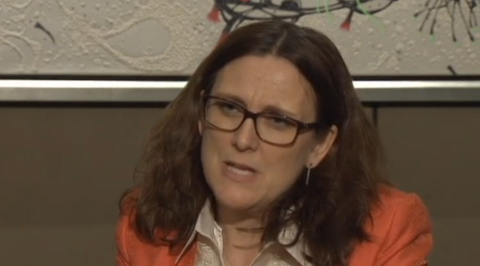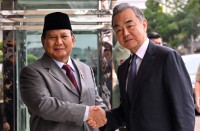
The European Union is seeing increased impetus around the world to move forward with Free Trade Agreements (FTA) with the bloc, which will make the most of uncertainty over future U.S. trade policy, the EU’s trade envoy said on Friday (March 10)
“We are willing to do good trade agreements. There’s rising protectionism across the world today and those of us who believe in other solutions, so we feel a need to stand up,” EU Trade Commissioner Cecilia Malmstrom told Reuters in an interview.
One project thrust back on the table is an FTA between the EU and the Association of Southeast Asian Nations (ASEAN) that was abandoned in 2009 due to disparities in wealth and standards between its 10 markets.
“It would be a challenge because the economic integration has advanced in an impressive way, but there’s still a lot of differences between the richest countries and the poorest countries in here. So of course they will have to be different levels and it will not be as ambitious as the one we have with Singapore or Vietnam, for instance. It would be more of a… you know… find common base where we can agree on certain issues: SMEs, rules overreaching, tariffs, investment,” Malmstrom said.
The EU was close to finishing or implementing FTAs with Japan, Vietnam and Singapore and the stage was set to start talks with Australia, New Zealand and Chile – members of a U.S-inspired Trans Pacific Partnership (TPP) devastated by Donald Trump’s decision to pull Washington out of the deal on the third day of his presidency.
Malmstrom also said it should not be assumed an EU-U.S. trade deal had collapsed, despite indications the Trump administration would pursue a protectionist agenda.
EU and U.S. officials were negotiating for more than three years on a Transatlantic Trade and Investment Partnership (TTIP) and that could be easily resumed, she said, and should not be impacted by Britain’s looming departure from the EU. (Reuters)







